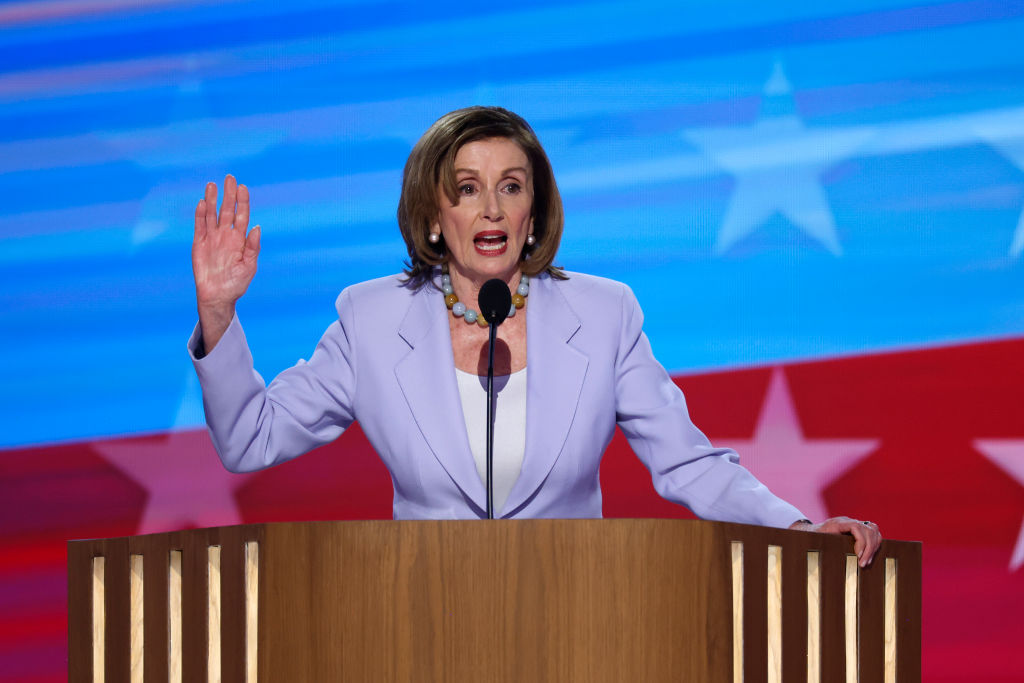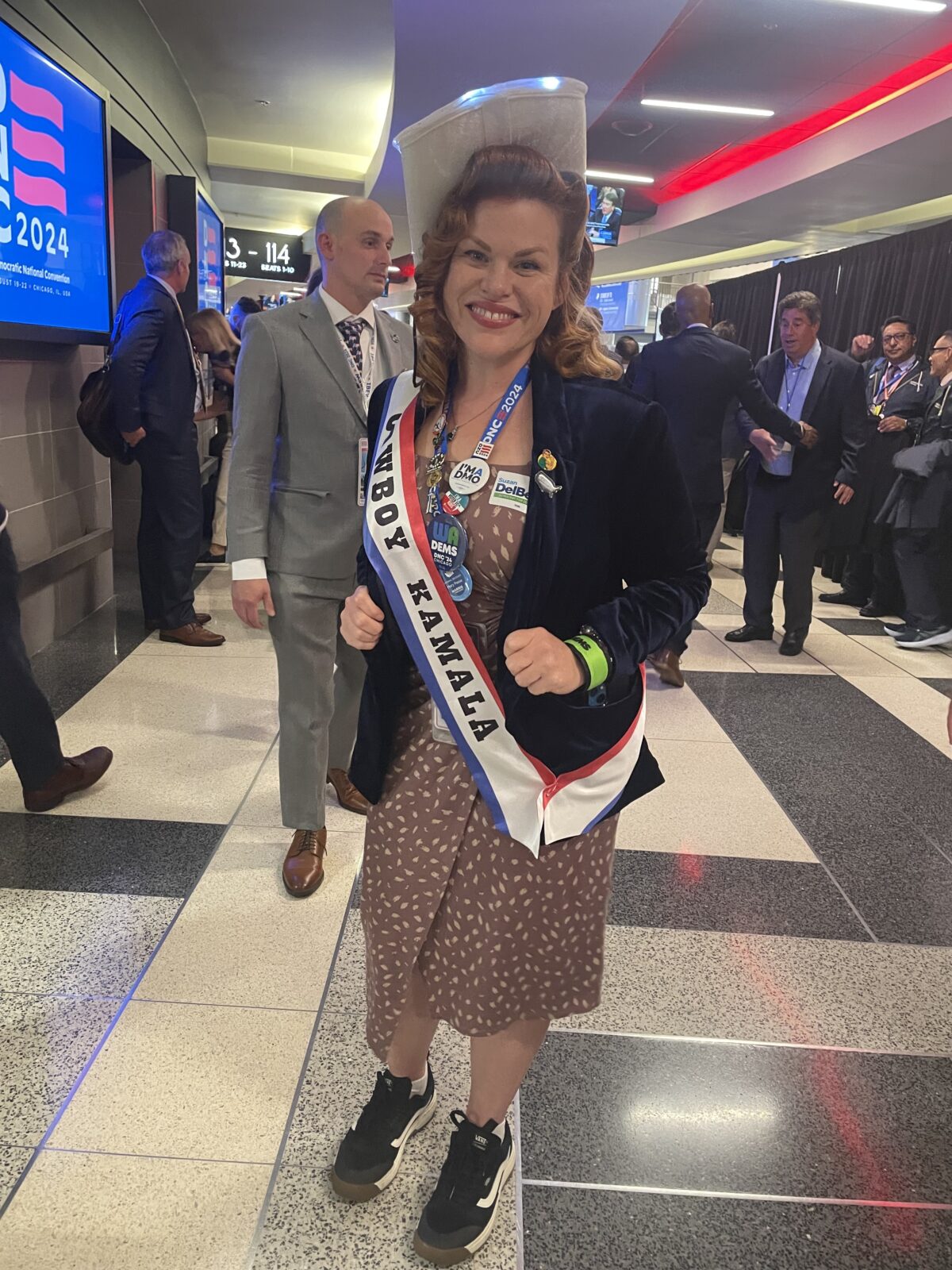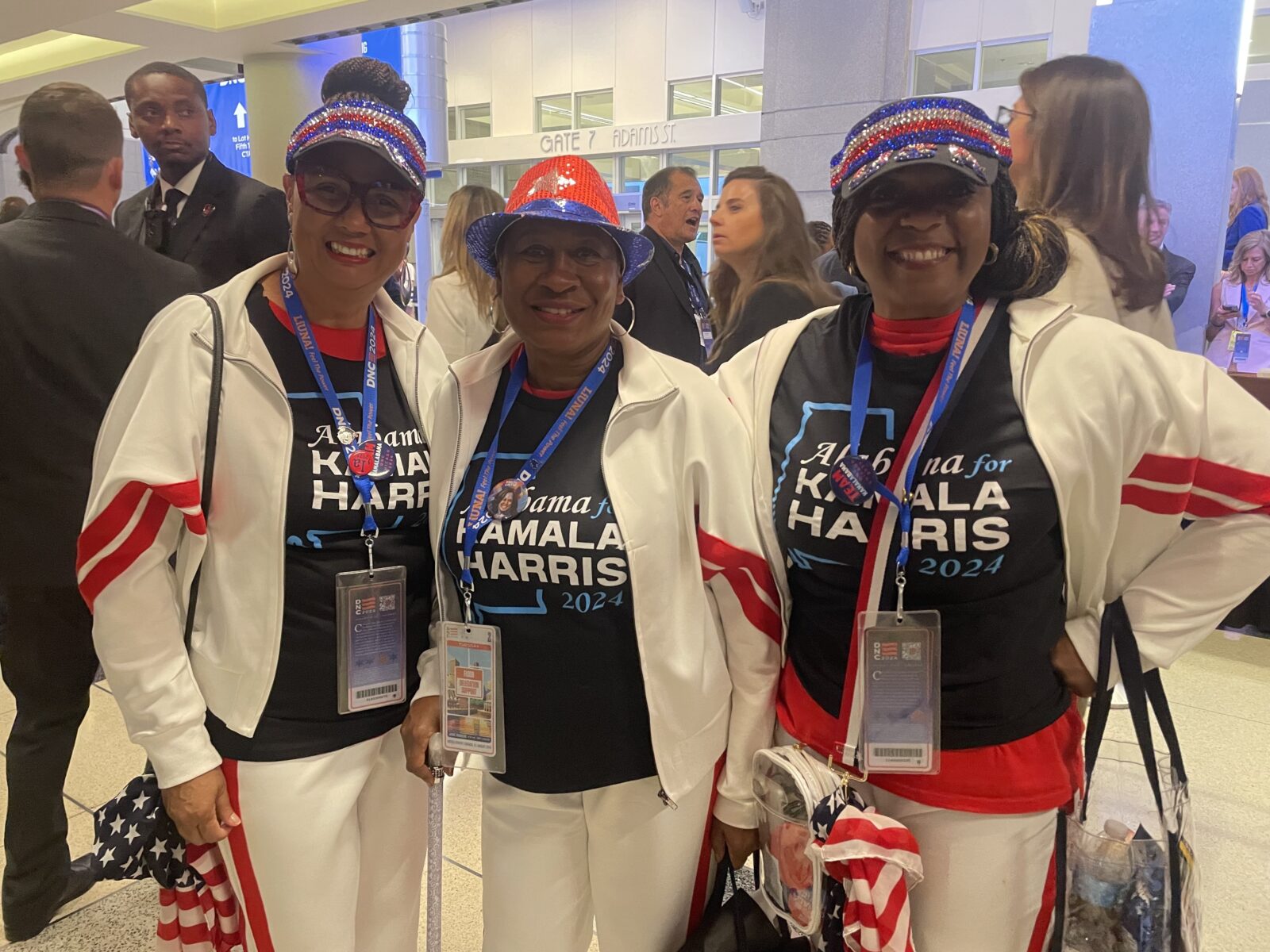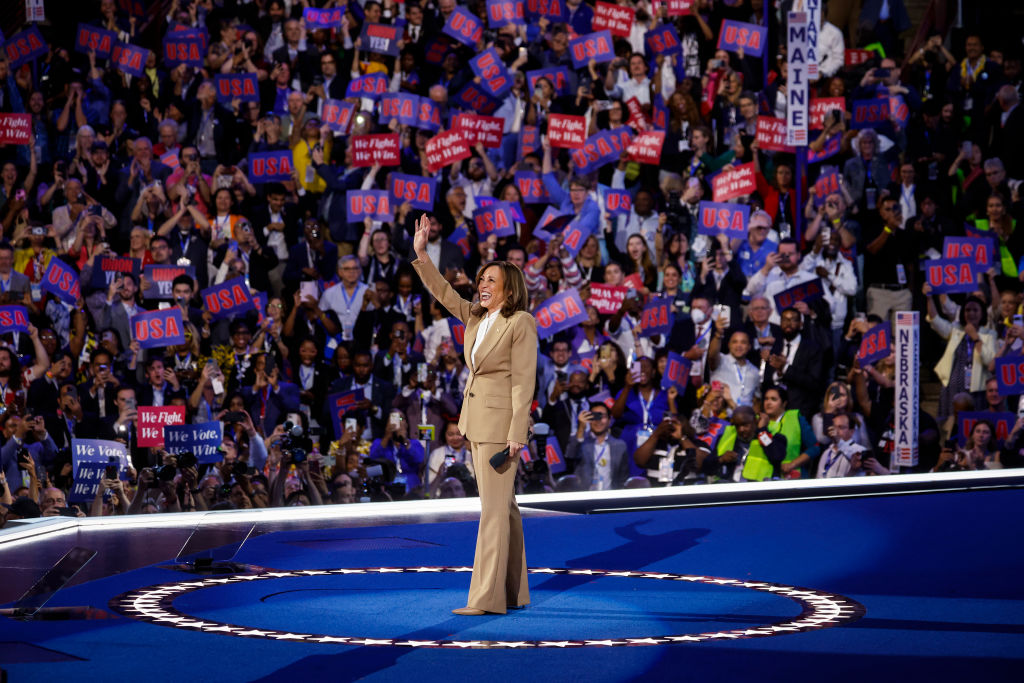Eight years ago, Hillary Clinton made history as the first woman to be nominated for president by a major party. A proud feminist, she embraced the trailblazing nature of her campaign, portraying it as a quest to break the “highest, hardest glass ceiling.” But winning the popular vote still didn’t enable her to shatter the glass. A greater equality, the dream of generations of women, remained just that—a dream. Another woman would have to make it come true.
This week, in what might have been the waning days of her second term, Clinton declared in a full-throated speech at the Democratic National Convention, that “the future is here.” It is Kamala Harris, she said, who can smash that centuries-old ceiling once and for all.
Vice President Harris, a strong feminist in her own right, is running less as a female candidate than as a nominee who just happens to be a woman—and a woman of color, at that. Democrats, overwhelmingly jubilant at their Chicago nominating convention, told me that they think it’s a winning strategy. Times have changed since 2016, they said.
Have they?
It is true that Harris isn’t burdened by the baggage that Clinton carried, female-centric stereotypes that stuck to her like gum to a shoe, dating from her years as first lady, senator and secretary of state. Harris is something of a blank slate who is re-introducing herself to the American people in a way that, Democrats hope, they will find both positive and palatable.
Yes, palatable. Even in 2024, women candidates — like all women in positions of power — must come across as not only competent, right and smart, but as palatable. Another word for that is “likable.” During Clinton’s campaign in 2016, many voters told pollsters and journalists (including this one) that they’d vote for a woman, “just not that woman.” It’s a common refrain that is being put to the test yet again.
Still, the obstacle of “running while female” might be ameliorated by some big things that have happened since Clinton sought the White House, convention delegates, pollsters and women’s advocates told me.
One is the presidency of Donald Trump.
Another is the Jan. 6 insurrection, Trump’s efforts to overturn the 2020 election and the potential for history to repeat itself.
But perhaps the most powerful development is the Supreme Court’s reversal of Roe v. Wade, an unpopular decision that helped Democrats avert a predicted “red wave” in the 2022 midterm elections and led to successful state initiatives (with more ballot measures in the pipeline) to protect abortion rights.
While acknowledging that she is “still heartbroken” about Clinton’s loss, former House Speaker Nancy Pelosi told me in an interview that the country is in a different place now than it was eight years ago. In 2016, voters didn’t have a full understanding of “how awful” Trump was, she said. “We know now, and he’s even promised to be worse than he was before,” Pelosi said. “I don’t know that he keeps promises, but it’s scary. So I think that the reality of what the actual contrast is between the two candidates is much clearer now in terms of how damaging it is to our country.”
Additionally, Pelosi told me that Clinton—and even Pelosi herself, as the first and, to date, only female speaker, “paved the way” for Harris to win. “And when we do [win], she will be a great president. And it so happens, she’ll be a woman president, she’ll be a woman of color president, but she will be the best president,” Pelosi said. “That will be icing on the cake.”

As for abortion, Pelosi said succinctly: “It’s everything.”
Indeed, reproductive rights and, more specifically, the need to protect and restore them, were mentioned by the vast majority of convention speakers, from everyday Americans to former presidents and first ladies to celebrities. Women and men who live in states that have banned or restricted abortion access shared painful stories of near-death experiences when pregnancies became nonviable and women were denied the care they needed.
Oprah Winfrey called those who are telling about such travails “the new freedom fighters.” Gesturing to her body, Winfrey declared: “Because if you do not have autonomy over this, if you cannot control when and how you choose to bring your children into this world and how they are raised and supported, there is no American dream.”
That Trump nominated the three Supreme Court justices who helped overturn Roe, that he brags that he is responsible for a decision he falsely says most Americans wanted, that the ruling could lead to further restrictions on reproductive rights, will be a major theme of the Harris campaign.
Her running mate, Minnesota Gov. Tim Walz, noted that soon after the Court took away the right to choose in 2022, his state moved to protect abortion rights. In Minnesota, he said during his convention speech, “we respect our neighbors and the personal choices they make. And even if we wouldn’t make those same choices for ourselves, we’ve got a golden rule: Mind your own damn business.”
Clearly, Democrats have found their voice on abortion in a way that they hadn’t before. Polls explain why. In May, fully 85 percent of respondents told Gallup, a nonpartisan polling firm, that abortion should be legal in all or some circumstances. Only 12 percent said it should be illegal in all circumstances. That and other, similar polls also explain why abortion was not a hot topic at the Republican National Convention a few weeks ago.
Delegates to the Democratic convention were optimistic about their second female nominee, though it’s easy to be swept up by the excitement of a festive four-day event featuring the likes of Stevie Wonder, John Legend and Winfrey, not to mention such Democratic icons as the Obamas, the Clintons and a slew of up-and-comers.
“I think the country is absolutely ready for a woman president,” Anne Schaeffer, an Illinois lobbyist and former legislative assistant, told me. “This campaign offers a lot of inspiration and a lot of connection.”
“Are you feeling the energy?” asked Mary Fosse, a state representative from Everett, Wash., who was sporting a red, white and blue “Cowboy Kamala” sash and a cowboy hat in deference to Beyonce’s latest album, Cowboy Carter. “I have not felt this kind of energy and vigor in so many years. … Kamala Harris has this appeal to women and people who have diverse backgrounds. People see themselves in her.”

Alabama state Sen. Merika Coleman went to the convention hall in a sparkly red-and-blue hat with a silver star and a pin bearing a picture of Harris.
“It’s amazing to be part of history,” said Coleman, chair of her state’s Legislative Black Caucus. “We had an amazing opportunity with Hillary Clinton…. Kamala Harris is one of the most qualified people ever to run for president of the United States. She just happens to be a woman. She just happens to be a Black woman. She just happens to be an Asian woman.”

The question now is whether Harris will be the first female president or just another woman to hit her head on the glass.



